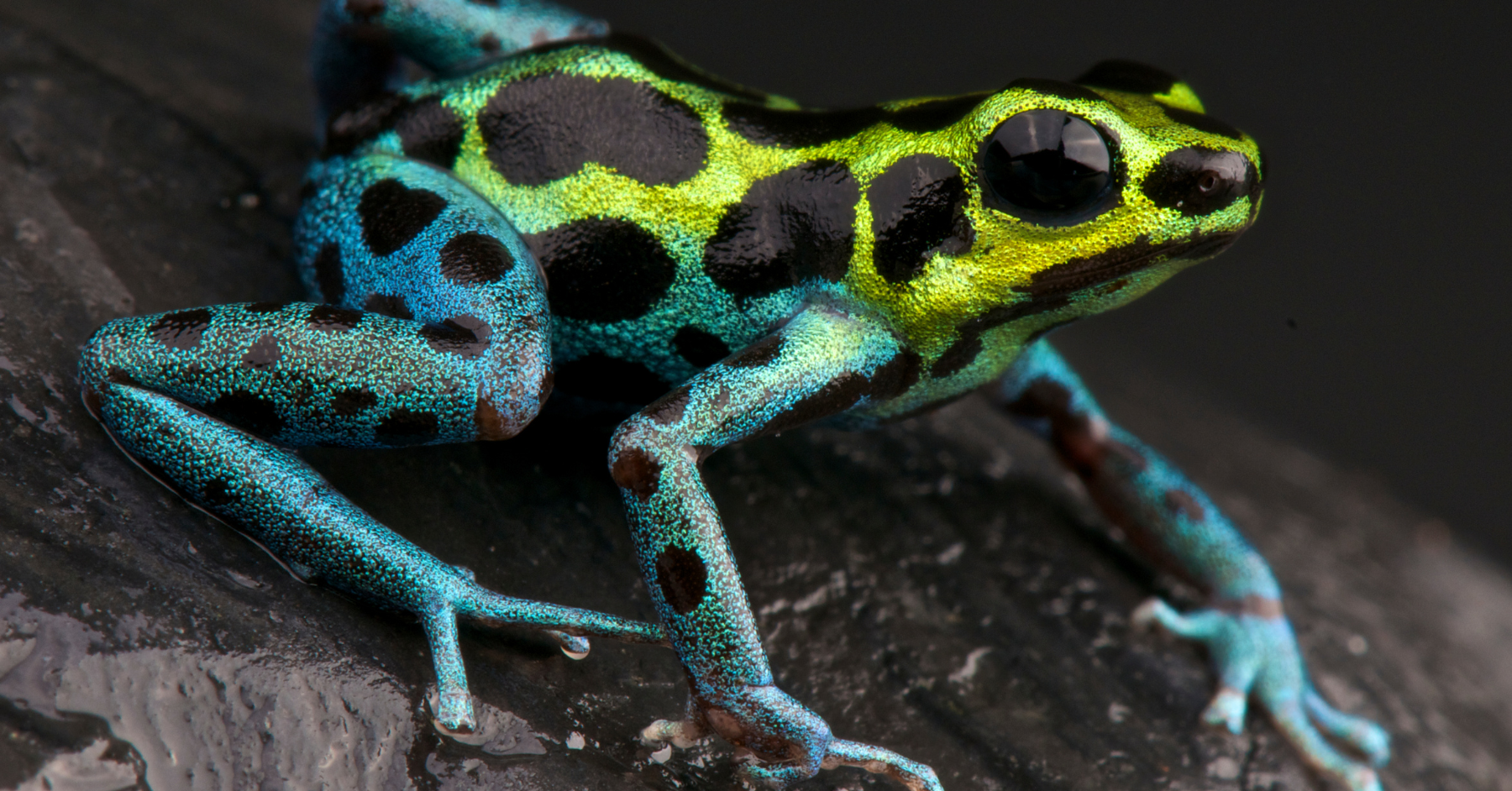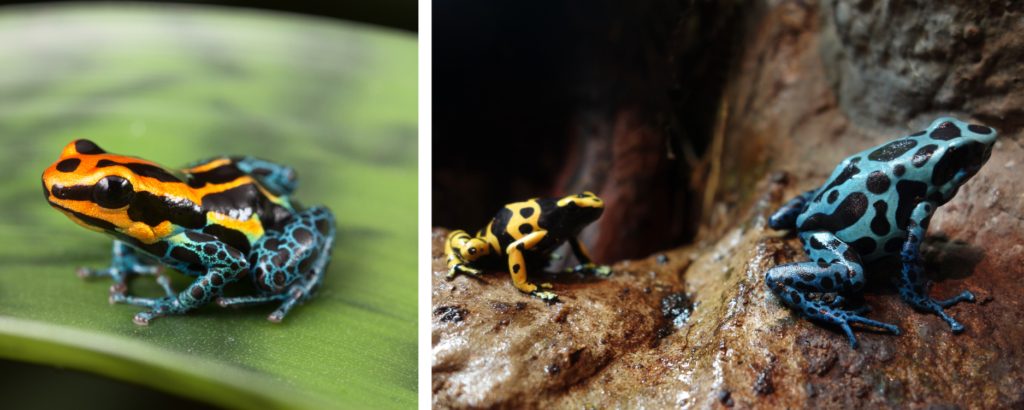
Last week, the BBC’s Science Focus article “This adorable frog could change everything we know about animal empathy” reported that Poison Dart Frogs display empathy. We were left wanting to know more about these amazing amphibians, so we got to work!
Did you know that Poison Dart Frogs . . .
. . . live in the tropical rainforests of Central and South America?
. . . are very small, averaging about ¾ – 1½ inches in length?
. . . communicate with one another from afar through various vocalizations?
. . . are diurnal (i.e., most active in the daytime) and not, like most frog species, nocturnal?
. . . are called an “army” when in a group?

. . . are “among the most poisonous amphibians in the world”?
. . . are “aposematic”, meaning they “wear some of the most brilliant and beautiful colors on Earth” (including yellow, gold, copper, red, green, blue, and black) “to ward off potential predators” (by “telling would-be predators ‘I’m poisonous, don’t eat me’”)?
. . . have only one natural predator, “a species of snake that has developed a resistance” to their toxin?
. . . got their name “from the practice of Native American tribesmen” rubbing “their arrow tips on the frogs’ backs before hunting”?
. . . live an average of 3-15 years in the wild?
. . . are insectivores, who “rely[] on their long, sticky tongues to flash out and catch fast-moving prey in the blink of an eye”? (Their natural diet is actually what leads to their toxicity, which they lose in captivity.)
. . . play crucial ecological roles in their natural environments (by, for example, “controlling insect populations and preventing plants from being overconsumed”)?
. . . “display elaborate and diverse courtship behaviors”, to include males’ performing “elaborate courtship dances to attract females” and “mutual stroking”?
. . . are monogamous, with “males and females rear[ing] their offspring together, communicating and helping each other out along the way”?
. . . are “very attentive parents”, who guard and tend to their young? (Fathers are specifically “exceptional in their care, attending to the clutch, sometimes exclusively….”)
. . . are listed as endangered species because of “deforestation and human infrastructure projects” that are destroying their rainforest habitats?